On this day in 1919, 300 Egyptian women led by Huda Shaarawi marched against the British occupation. One woman, Hamida Khalil, was killed, making her the first Egyptian woman martyr that day.
On the same day four years later, Shaarawi led the march to form Egypt's first Women's Feminist Movement. The march progressed from then on.
This year, Ahram Online celebrates Egyptian Women's Day in collaboration with The AUC Rare Books and Special Collection Library, by sharing the stories of some inspiring Egyptian women who led the march for Egyptian women's rights. Every Thursday, the biography of an inspiring Egyptian woman will be shared.The series kicks off with the woman behind the march, Huda Shaarawi (1879-1947)
Huda Shaarawi (1879-1947): The artist and trendsetter
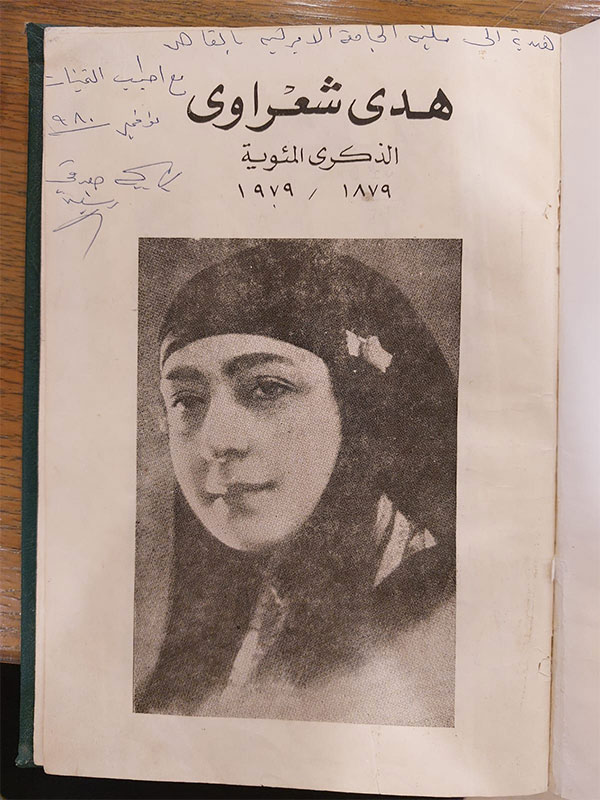
Hoda Mohamed Sultan was born in the Upper Egyptian governorate of Minya in 1879 to a prestigious and wealthy family who provided a luxurious life for her and her brother.
However, education for women was limited to homeschooling, where she learned foreign languages and fine arts. "But that never stopped little Huda from sneaking from the Haramlek (women's quarters) of her palace and joining her brother Omar in his Arabic classes, where she excelled," read the book titled Huda Shaarawi by Karima Said, published in 1979 to mark the centenary of her birth.
This made Shaarawi one of the very few women in her class who could recite the Quran, showing command of classic Arabic. Later on, she drafted all her speeches herself.
"I remember the first book I took from my father's library, I hid it under my pillow. It was a poetry book. I did not understand much of it, but it touched me and I read it over and over again," read the article published in El-Mossawer magazine in 1948 by Amina El-Said marking Shaarawi's first death anniversary.
The article revealed how Shaarawi was a good poet who wrote poetry in classic Arabic and French. Shaarawi was quite the artist: she sculpted, designed pottery motifs, and opened a factory for pottery. She was also known for her clothing style that reflected grace and beauty and made her more of a trendsetter to women of her generation.
Social responsibility
In 1908, as Egypt battled with the yellow fever epidemic, Shaarawi refused to collaborate with the initiative of Lady Cromer, the spouse of the British consul-general in Egypt. Instead, she co-founded Mabraat Mohamed Ali – a hospital – with Egyptian princesses, to offer medical care to Egyptians.
The march of March
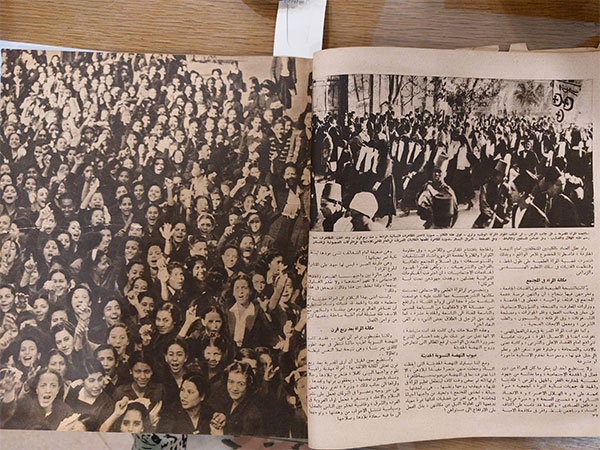
According to the book titled Huda Shaarawi, the 16 March march put Egyptian women in the heart of patriotic resistance against British occupation. For the first time, Egyptian society gave their blessings to the movement.
A short time after, Shaarawi founded the Central Women's Committee for the Wafd Party in solidarity with Saad Zaghloul and was elected head of the committee at the meeting held at Saint Marc Church. The location of the meeting stood as a symbol of unity between Egyptian Muslims and Christians.
In Rome
In 1923, Shaarawi received an invitation to attend the International Women Federation Conference in Rome.
In the same year, Shaarawi founded the Egyptian Women Federation and formed a delegate that included herself, Seiza Nabarawy, and Nabawia Mousa.
The delegation was widely welcomed. Upon returning home, Shaarawi took off her face cover, keeping her conservative head cover on.
The women who came to greet her at the train station understood the message and did the same - an act that put an end to women’s face cover and closed the chapter on their being cast away from public life and mainstream education.
From that day on, Shaarawi's home became known as Beit El-Umma (House of the Nation). Every Tuesday, Egyptian men and women would flock to Beit El-Umma, read the book titled Huda Shaarawi.
In 1926, Shaarawi issued L' Egyptienne, a women's magazine published in the French language.
Achievements
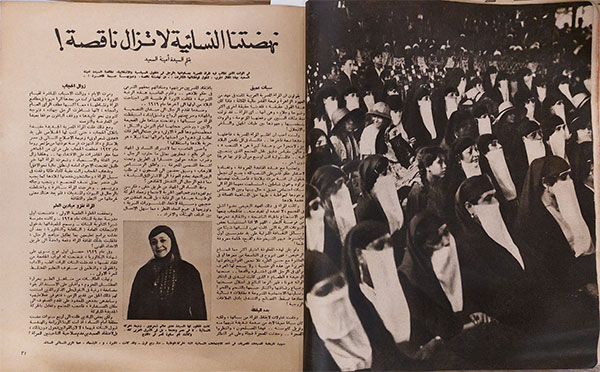
Shaarawi made great efforts to attain women's rights. Among the most outstanding of these is setting a minimum age for marriage: 16 for women and 18 for men.
She opened the door for mainstream high schools for women in 1924 and mainstream universities in 1929.
She was the first Egyptian to call for the abolition of the domestic prostitution law. Indeed, the law was abolished in 1948/49, 18 months after she died.
Shaarawi also founded the Arab Women Federation in 1944. The federation included Egypt, Lebanon, Syria, Iraq, Jordan, and Palestine.
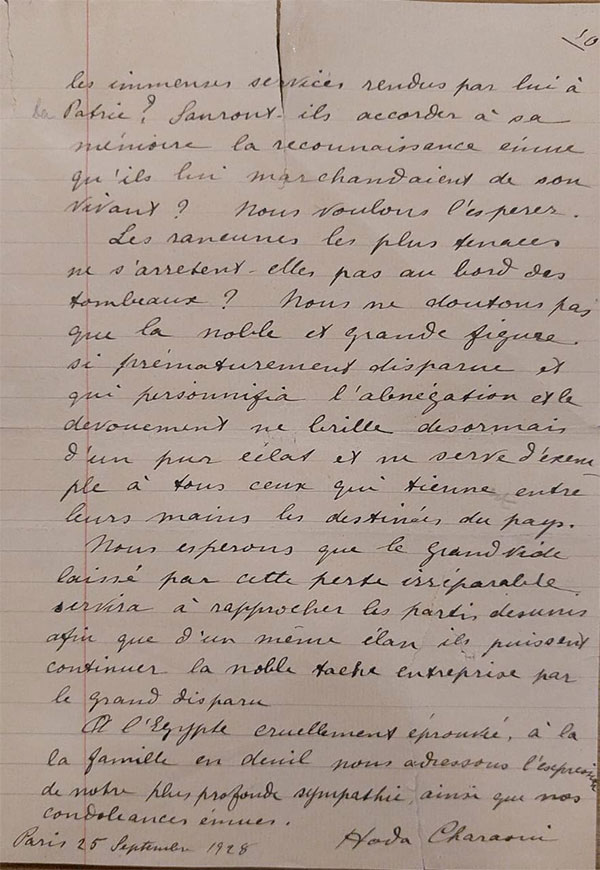
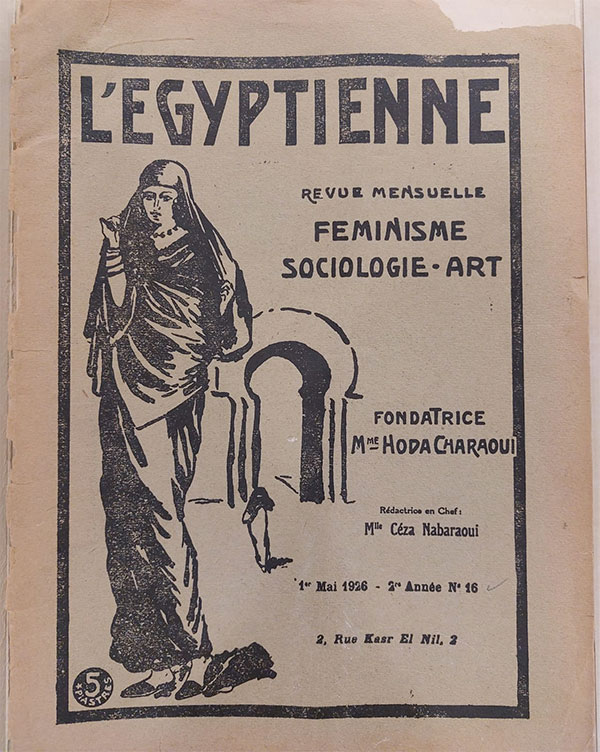
*Photos courtesy of AUC Rare Books and Special Collections Library
Short link: